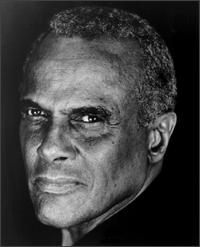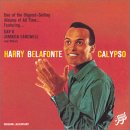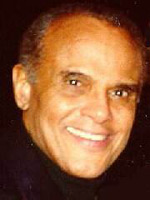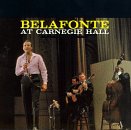'Day-O!' -- You're Invited to Legendary Harry Belafonte's Ubben Lecture Saturday
September 2, 2002
 September 2, 2002, Greencastle, Ind. - You're invited to spend this Saturday afternoon, September 7, 2002, with Harry Belafonte, the first recording artist to have an album sell over a million copies, the first black performer to win an Emmy Award, and a champion of human and civil rights who has campaigned against injustice worldwide. The legendary actor, producer, music composer and arranger will present a Timothy and Sharon Ubben Lecture at 4 p.m. in Meharry Hall of historic East College, entitled “An Afternoon with Harry Belafonte.” As with other speeches in the Ubben Lecture Series, which has brought prominent individuals from around the world to DePauw University since 1986 (see entire list), Mr. Belafonte's appearance is free and open to the public.
September 2, 2002, Greencastle, Ind. - You're invited to spend this Saturday afternoon, September 7, 2002, with Harry Belafonte, the first recording artist to have an album sell over a million copies, the first black performer to win an Emmy Award, and a champion of human and civil rights who has campaigned against injustice worldwide. The legendary actor, producer, music composer and arranger will present a Timothy and Sharon Ubben Lecture at 4 p.m. in Meharry Hall of historic East College, entitled “An Afternoon with Harry Belafonte.” As with other speeches in the Ubben Lecture Series, which has brought prominent individuals from around the world to DePauw University since 1986 (see entire list), Mr. Belafonte's appearance is free and open to the public.
As the winner of a 1953 Tony Award for his supporting work in the musical revue, John Murray Anderson's Almanac and an Emmy for his first solo TV special, Tonight with Belafonte, the voice behind the million-selling 1955 album "Calypso"  (which included the still-ubiquitous song Banana Boat Song (Day-O)), and the star of notable films such as Carmen Jones, Harry Belafonte is known by generations of people one of the world's top entertainers. However, he is also known globally for his longstanding work as an activist in the fights against racism, violence and world hunger. Belafonte has dedicated his life to uniting people and doing battle for causes often considered “controversial.”
(which included the still-ubiquitous song Banana Boat Song (Day-O)), and the star of notable films such as Carmen Jones, Harry Belafonte is known by generations of people one of the world's top entertainers. However, he is also known globally for his longstanding work as an activist in the fights against racism, violence and world hunger. Belafonte has dedicated his life to uniting people and doing battle for causes often considered “controversial.”
In 1960, he was named by President John F. Kennedy as cultural adviser to the Peace Corps, the first entertainer so named. At the urging of his close friend Dr. Martin Luther King Jr., Belafonte took the message of civil rights outside of the United States by performing concerts in Europe. Dr. King later said, “Belafonte's global popularity and his commitment to our cause is a key ingredient to the global struggle for freedom and a powerful tactical weapon in the civil rights movement here in America.”
Over the years, Belafonte was also a vigorous activist in the fight against apartheid, helped organize the vastly successful 1985 We Are the World recording to raise money for the starving in Africa.  Harry Belafonte was the first recipient of the Nelson Mandela Courage Award and in 1994 was honored by President Clinton with the National Medal for Arts for his contributions to our nation's cultural life. He's also received the Albert Einstein Award, and the Martin Luther King Jr. Peace Prize and been recognized by diverse groups such as the American Jewish Congress, Boy Scouts of America, the Anti-Defamation League of B'nai B'rith, the State Department and the NAACP. In 1989, Belafonte received the prestigious Kennedy Center Honors for excellence in the performing arts. In 1987, he was appointed UNICEF Goodwill Ambassador, only the second American to receive the title.
Harry Belafonte was the first recipient of the Nelson Mandela Courage Award and in 1994 was honored by President Clinton with the National Medal for Arts for his contributions to our nation's cultural life. He's also received the Albert Einstein Award, and the Martin Luther King Jr. Peace Prize and been recognized by diverse groups such as the American Jewish Congress, Boy Scouts of America, the Anti-Defamation League of B'nai B'rith, the State Department and the NAACP. In 1989, Belafonte received the prestigious Kennedy Center Honors for excellence in the performing arts. In 1987, he was appointed UNICEF Goodwill Ambassador, only the second American to receive the title.
"I think we have much to celebrate this July Fourth, but we still have a long, long way to go," Belafonte told the Bucks County Courier Times outside of Philadelphia, where he performed in concert Independence Day. "Socially segregated America is still a reality for black Americans, and so many of us grew up with a sense of deep vulnerability. Other Americans are feeling that vulnerability after being exposed to the terrorism of September 11," Belafonte noted (read more here; read about a Boston Herald review of a summer Belafonte concert here).
 In May, delivering the commencement address at Monmouth College, the 75-year-old Belafonte told graduates, "In the next 75 years – which I intend to live – I hope to bump into one or two or 500 of you who will say, 'We spent this day together and you inspired me to take a closer look at the world.'” The graduates called out “Day-O!”, hoping to get Belafonte to break out in song, and he granted their wish with, “"Day-O! Day-ay-ay-O. I got my degree and I want to go home.”
In May, delivering the commencement address at Monmouth College, the 75-year-old Belafonte told graduates, "In the next 75 years – which I intend to live – I hope to bump into one or two or 500 of you who will say, 'We spent this day together and you inspired me to take a closer look at the world.'” The graduates called out “Day-O!”, hoping to get Belafonte to break out in song, and he granted their wish with, “"Day-O! Day-ay-ay-O. I got my degree and I want to go home.”
Harry Belafonte's Ubben Lecture is part of Coming Together 2002: An Alumni of Color Reunion. You can learn more by clicking here.
